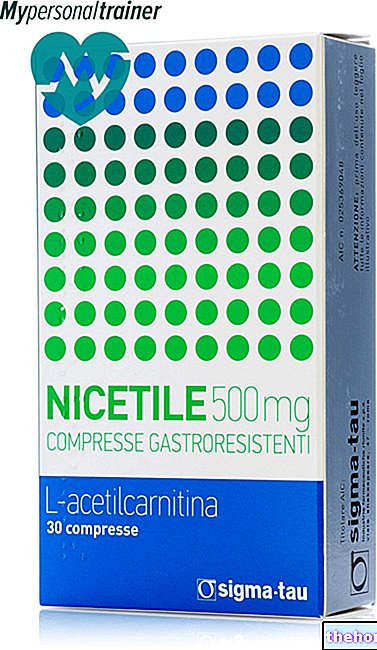Active ingredients: Paracetamol, Pseudoephedrine hydrochloride, Diphenhydramine hydrochloride
ACTIGRIP DAY & NIGHT tablets
Indications
What is ACTIGRIP DAY AND NIGHT and what is it for?
ACTIGRIP DAY AND NIGHT is a medicine used to treat cold and flu symptoms.
Contraindications
When ACTIGRIP DAY AND NIGHT should not be used
Do not take ACTIGRIP DAY AND NIGHT if:
- Are you allergic to paracetamol, pseudoephedrine hydrochloride, diphenhydramine hydrochloride or one
any of the other ingredients of this medicine (listed in section 6); - Have high blood pressure (hypertension) or have heart disease (cardiovascular disease);
- Have had a stroke or think you may be at risk for this condition (for example if you have high blood pressure, diabetes or high cholesterol or smoke);
- You are taking or have taken in the past two weeks medicines for depression known as monoamine oxidase inhibitors (MAOIs);
- Have or have had seizures or epilepsy;
- You have glaucoma (increased pressure inside the eye with possible worsening of vision);
- Have had symptoms due to a disease known as favism or bean disease, which causes a decrease in red blood cells (insufficiency of glucose-6-phosphate dehydrogenase);
- You have a narrowing (stricture) of the stomach or intestines (gastrointestinal tract), bladder, urethra or ureters (urogenital tract);
- Suffer from asthma;
- Suffer from diabetes;
- Has increased thyroid function (hyperthyroidism);
- You have an increased volume of the prostate which causes problems such as difficulty passing urine or the need to pass urine often (prostatic hypertrophy);
- You are pregnant or think you are pregnant or are breastfeeding.
Do not use ACTIGRIP DAY AND NIGHT in children under 12 years of age.
Precautions for Use
What you need to know before taking ACTIGRIP DAY AND NIGHT
Talk to your doctor or pharmacist before taking ACTIGRIP DAY AND NIGHT if:
- Have severe hemolytic anemia (a disease that destroys red blood cells) or have a blood disorder known as glucose 6 phosphate dehydrogenase deficiency;
- You have liver problems, take drugs that alter its functioning or use large amounts of alcohol (alcoholism);
- You have breathing problems such as: emphysema or chronic bronchitis;
- Have kidney problems
- Has reduced kidney function;
- You have thyroid problems.
Stop using ACTIGRIP DAY AND NIGHT and see your doctor if you do not notice any improvement or if you notice worsening of your symptoms or if new symptoms appear.
With ACTIGRIP DAY AND NIGHT can occur sudden:
- Abdominal pain or rectal bleeding due to inflammation of the colon (ischemic colitis). If you experience these gastrointestinal symptoms, stop using ACTIGRIP DAY AND NIGHT and contact your doctor or seek medical assistance immediately (see section 4. "Possible side effects").
- Serious skin reactions such as acute and generalized exanthematous pustulosis (AGEP) have been reported very rarely with products containing pseudoephedrine. This acute pustular rash can occur within the first 2 days of treatment, with numerous fever, small, mostly non-follicular pustules resulting from a widespread edematous erythema and localized mainly on the skin folds, trunk and upper limbs. If you develop generalized febrile erythema associated with pustules, stop taking ACTIGRIP DAY AND NIGHT and contact your doctor or seek medical assistance immediately (see section 4. "Possible side effects").
Important information about paracetamol
High doses of paracetamol can cause adverse reactions, even serious ones, especially affecting the liver, kidneys and blood. PAY ATTENTION: the total daily dose of paracetamol should not exceed 4 grams per day.
Do not use ACTIGRIP DAY AND NIGHT at doses higher than those recommended, or for a long time, or at the same time as other medicines containing paracetamol (see "Other medicines and ACTIGRIP DAY AND NIGHT").
Severe skin reactions, manifesting as redness, blistering or pus formation and exfoliation (e.g. acute generalized exanthematous pustulosis, Stevens-Johnson syndrome and toxic epidermal necrolysis) have been reported during treatment with paracetamol, although very rarely. . In the early stages of therapy, patients appear to be at higher risk: the onset of the reaction occurs in most cases in the early stages of treatment.
SUSPEND treatment with ACTIGRIP DAY AND NIGHT and contact your doctor if you notice any skin reactions or other signs of allergy (see section 4).
- Due to the paracetamol content, ACTIGRIP DAY AND NIGHT can influence the results of some laboratory tests, such as tests for measuring uric acid (uric acid) and glucose (glycaemia) in the blood.
For those who carry out sporting activities: the use of the drug without therapeutic necessity constitutes doping and can in any case determine positive anti-doping tests
Interactions
Which drugs or foods can modify the effect of ACTIGRIP DAY AND NIGHT
Tell your doctor or pharmacist if you are taking, have recently taken or might take any other medicines.
Do not take ACTIGRIP DAY AND NIGHT with:
- Other drugs that contain paracetamol or that reduce fever (antipyretics) and pain (analgesics: NSAIDs, selective COX-2 inhibitors, corticosteroids);
- Other medications that contain diphenhydramine, including for topical use (e.g. creams).
Take CAUTION: some of the following medicines may interact with ACTIGRIP DAY AND NIGHT:
- Anticholinergic drugs, for example drugs used to treat mood disorders such as antidepressants (tricyclics and MAOIs), atropine and other psychotropic drugs;
- Hypnotics, sedatives and tranquilizers;
- Antihistamines;
- Sympathomimetic drugs, such as drugs that reduce swelling of the nose (decongestants) or drugs that reduce appetite (anorectics, amphetamine-like);
- Antihypertensives such as methyldopa, alpha and beta blockers, debrisoquine, guanethidine, betanidine and bretilium (drugs against high blood pressure);
- Cholestyramine (used to lower blood cholesterol)
- Metoclopramide or domperidone (used to treat nausea and vomiting);
- Medicines that delay blood clotting (anticoagulants), such as warfarin or other coumarins
- Anticonvulsants or antiepileptics (drugs used to treat epilepsy) such as glutethimide, phenobarbital, carbamazepine;
- Rifampicin (drug used to treat tuberculosis);
- Cimetidine (drug used for peptic ulcer);
- Probenecid (drug used in gout).
ACTIGRIP DAY AND NIGHT with alcohol
Do not drink alcohol while using ACTIGRIP DAY AND NIGHT as this may interfere with your treatment and / or increase the risk of adverse events, especially affecting the liver.
Warnings
It is important to know that:
Pregnancy and breastfeeding
If you are pregnant or breast-feeding, think you may be pregnant or are planning to have a baby, ask your doctor or pharmacist for advice before taking this medicine.
The active ingredients of ACTIGRIP DAY AND NIGHT cross the placenta and are secreted in breast milk: the use of ACTIGRIP DAY AND NIGHT is contraindicated during pregnancy and breastfeeding.
Driving and using machines
ACTIGRIP DAY AND NIGHT blue tablets can cause drowsiness. Make sure you do not suffer from this side effect before driving or using machines.
Dose and Method of Use
How to take ACTIGRIP DAY AND NIGHT
Always take this medicine exactly as described in this leaflet or as directed by your doctor or pharmacist. If in doubt, consult your doctor or pharmacist.
Check the table below to find the correct dose to take.
- Take the tablets by mouth (orally) and without chewing them.
- Do not exceed the recommended dose. If you have any questions, consult your doctor or pharmacist. Follow the indicated doses carefully.
- ACTIGRIP DAY AND NIGHT contains 2 types of different colored tablets, which must be taken at different times of the day.
Children under 12 years of age
Do not use ACTIGRIP DAY AND NIGHT in children under 12 years of age.
Adults and children over 12 years of age
During the day
1 white tablet, 3 times a day: 1 in the morning, 1 in
noon and 1 in the afternoon.
During the evening
1 blue tablet, in the evening before bedtime.
- Do not take more than 3 white tablets per day.
- If you do not feel better, if you have a high fever or other side effects after 3 days of continuous use, stop the treatment.
If you forget to take ACTIGRIP DAY AND NIGHT
Do not take a double dose to make up for a forgotten dose.
Take care: always wait 4-6 hours between one dose and the next.
If you have any further questions on the use of this medicine, ask your doctor or pharmacist.
Overdose
What to do if you have taken too much ACTIGRIP DAY AND NIGHT
If you take more ACTIGRIP DAY AND NIGHT than you should, it could have serious side effects, especially affecting the liver, blood and heart. Notify your doctor immediately or go to the nearest hospital even if you feel well, as these effects may occur even several hours after taking it.
Keep this medicine out of the reach of children. In the event of an overdose, ask your doctor for help or contact a poison control center right away.
Side effects
What are the Side Effects of ACTIGRIP DAY AND NIGHT
Like all medicines, this medicine can cause side effects, although not everybody gets them.
Very common side effects (may affect more than 1 in 10 people):
- Abdominal and stomach pains
- Difficult digestion (dyspepsia)
- Diarrhea
- Vomiting, dry throat
- Headache
- Drowsiness
- Sedation
- Excitement
- Increased sweating
- Sleep disorders
- Impaired vision
- Skin rash
- Urticaria
- Dryness of the nose
Common side effects (may affect up to 1 in 10 people):
- Itching
- Contact dermatitis
- Inflammation of the skin or mucous membranes
- Reduction in blood pressure including dizziness or lightheadedness when standing up (orthostatic / postural hypotension)
- Irregular heartbeat (arrhythmia)
- Increased heart rate (tachycardia)
- Nervousness
- Insomnia
- Dizziness
- Ringing or ringing in the ears (tinnitus)
- Movement coordination problems (ataxia)
- Euphoria
- Tremors
- Low blood pressure (hypotension)
- Decreased mucous secretions
- Double vision (diplopia)
- Impaired vision
- Increased pressure in the eye with impaired vision (glaucoma, narrow-angle glaucoma)
- Abdominal discomfort (epigastrium disorders)
- Difficulty breathing (dyspnoea)
- Urinary retention
- Increase in some blood values (hyperamylasemia)
- Fatigue
- Weakness (asthenia)
- Disturbances in liver function
- Nausea
- Dry mouth
Uncommon side effects (may affect up to 1 in 100 people):
- Skin reaction (fixed drug eruption)
- Severe rash (erythema multiforme)
- Widespread rash (rashes)
- Decreased kidney function (acute renal failure)
- Kidney inflammation (interstitial nephritis)
- Presence of blood in the urine (haematuria)
- Failure to produce urine (anuria)
- Constipation
- Sneezing
- Dryness of the throat and bronchi
- Sensitivity of the skin to light (photosensitivity)
- Nervous system disorders (central depression)
- Mental confusion
- Disorders of cognitive function
Rare side effects (may affect up to 1 in 10,000 people):
- Increased thyroid function (hyperthyroidism)
- Renal impairment (renal papillary necrosis)
- Hallucinations
- Nightmares
- Manias
- Anxiety
- Psychiatric disorders
- Severe headaches
- Reduced memory or concentration
- Convulsions
- Blood disorders (dyscrasias)
- Severe reduction in the number of white blood cells in the blood (agranulocytosis)
- Reduction in the number of red blood cells (anemia, haemolytic anemia)
- Reduction in the number of platelets (thrombocytopenia)
- Severe allergic reaction (anaphylactic shock)
- Swelling of the throat which may cause difficulty in swallowing and breathing (edema of the larynx)
- Inflammation of the liver (hepatitis)
- Inflammation of the pancreas (pancreatitis)
Very rare side effects (may affect up to 1 in 10,000 people):
- Reduction in the number of white blood cells (leukopenia)
- Reduction in the number of a type of white blood cell called neutrophils (neutrophilia)
- Reduction in the number of all blood cells (pancytopenia)
- Chest pain (angina)
- Changes in the electrocardiogram (increase in the ST segment)
- Heart attack
- Increased blood pressure (hypertension)
- Swelling due to fluid build-up around the mouth and eyes (angioedema)
- Fluid accumulation (edema)
- Liver disorders (hepatotoxicity)
- Severe immune system response (toxic shock syndrome)
Frequency not known (frequency cannot be estimated from the available data):
- Confusional state
- Irritability
- Agitation
- Abnormal coordination
- Altered sensation (paraesthesia)
- Psychomotor hyperactivity
- Stroke (cerebrovascular accidents)
- Feeling nervous
- Change in some blood values (increased transaminases), increase in blood pressure
- Widespread rash (itchy rash)
- Severe skin reactions
- Severe skin rash characterized by pustular formation (acute generalized and exanthematous pustulosis)
- Difficulty urinating (dysuria)
- Chest discomfort
- Perception of heartbeat (palpitations)
- Allergic reactions (hypersensitivity)
- Visual hallucination
- Inflammation of the colon due to insufficient blood supply (ischemic colitis) (See section "2 Warnings and precautions")
- Sudden onset of fever, redness of the skin or numerous small pustules (possible symptoms of Acute Generalized Exanthematous Pustulosis - AGEP) may occur within the first two days of treatment with ACTIGRIP DAY AND NIGHT (See section 2. "Warnings and precautions" ).
Stop using ACTIGRIP DAY AND NIGHT if you develop these symptoms and contact your doctor or seek medical help immediately.
Reporting of side effects
If you get any side effects, talk to your doctor or pharmacist. This includes any possible side effects not listed in this leaflet. You can also report side effects directly via the national reporting system at 'http://www.agenziafarmaco.gov.it/content/comesegnalare-una-sospetta-reazione-avversa. to provide more information on the safety of this medicine.
Expiry and Retention
Keep this medicine out of the sight and reach of children.
Store at a temperature not exceeding 25 ° C and in the original package to protect the medicine from light and moisture.
Do not use this medicine after the expiry date which is stated on the package. The expiry date refers to the last day of that month.
Do not throw any medicines via wastewater or household waste. Ask your pharmacist how to throw away medicines you no longer use. This will help protect the environment.
Composition and Pharmaceutical Form
What ACTIGRIP DAY AND NIGHT contains
The active ingredients are: paracetamol, pseudoephedrine hydrochloride and diphenhydramine hydrochloride.
- 1 white tablet contains: 500 mg of paracetamol and 60 mg of pseudoephedrine hydrochloride;
- 1 blue tablet contains: 500 mg of paracetamol and 25 mg of diphenhydramine hydrochloride.
The other ingredients are:
- 1 white tablet contains: microcrystalline cellulose, pregelatinised maize starch, croscarmellose sodium, magnesium stearate, povidone, crospovidone, stearic acid;
- 1 blue tablet contains: microcrystalline cellulose, maize starch, sodium starch glycolate, hydroxypropylcellulose, pregelatinised maize starch, croscarmellose sodium, stearic acid, magnesium stearate, hypromellose, Opadry blue 02H205000 (containing propylene glycol).
Other Information
What ACTIGRIP DAY AND NIGHT looks like and contents of the pack
ACTIGRIP DAY AND NIGHT is available in a pack containing 12 white tablets and 4 blue tablets.
Further information on ACTIGRIP DAY & NIGHT are available in the Summary of Product Characteristics available on the Official Website of the Italian Medicines Agency
Source Package Leaflet: AIFA (Italian Medicines Agency). Content published in October 2020.
The information present may not be up-to-date. For a correct use of this information, see the page: Disclaimer and Useful Information. For the most up-to-date version, access to the website of the Italian Medicines Agency (AIFA) is recommended.




























